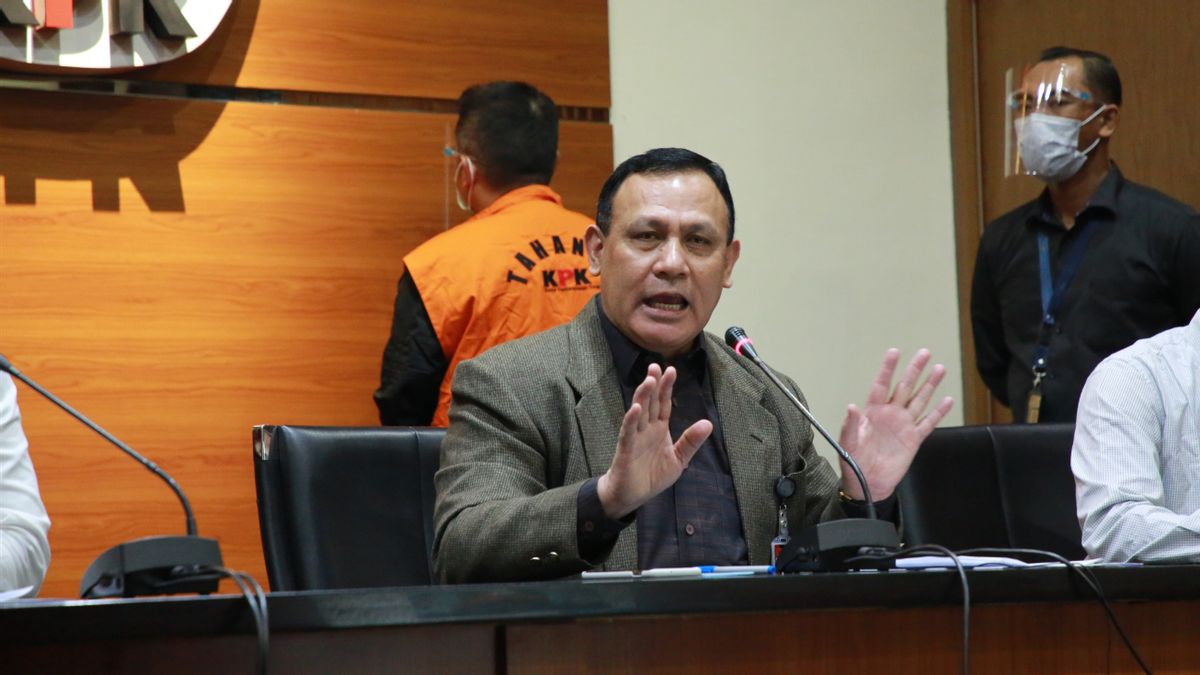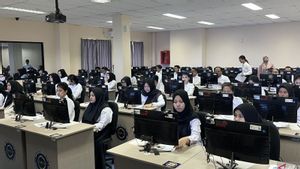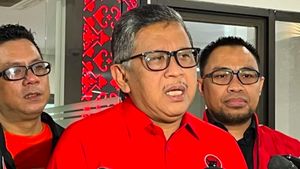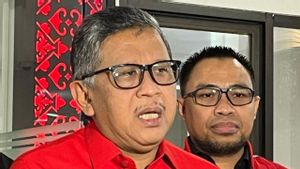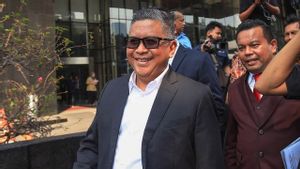JAKARTA - The Corruption Eradication Commission (KPK) emphasized that there are opportunities for death penalty charges against the Minister of Social Affairs Juliari Batubara and four other suspects when they sit as defendants at the Tipikor Court, in connection with the alleged corruption case of COVID-19 social assistance funds (bansos) in the Jabodetabek area.
As is known, Juliari Batubara himself is thought to have received a 'ration' of Rp. 17 billion from the COVID-19 social assistance procurement package. KPK chairman Firli Bahuri said investigators were still investigating suspected cases of corruption related to the provision of social assistance, aka COVID-19 social assistance at the Ministry of Social Affairs.
Furthermore, investigators will consider whether or not to impose the death penalty as stipulated in Article 2 Paragraph 2 of Law Number 31 Year 1999 concerning Corruption or Corruption Crime can be suspected or not against Juliari Batubara.
However, said Firli, currently Juliari Batubara is suspected of violating Article 12 letter a or b or Article 11 of Law Number 31 of 1999 as amended by Law Number 20 of 2001 concerning Eradication of Corruption in conjunction with Article 55 paragraph (1) to 1 KUHP.
"With regard to the articles, especially Article 2 Paragraph 2 of Law Number 31 Year 1999 concerning Corruption, of course we will investigate whether Article 2 (the death penalty) can we prove it is related to the procurement of goods and services," he said at a press conference. , at the KPK Building, Sunday, December 6.
Firli explained that his party must further investigate a number of elements in this case. Starting from the perpetrator's side, actions against the law to enrich themselves, other people or corporations, to whether this case is detrimental to state finances.
"That we explore about the procurement process. But it should be remembered that what we are conveying today is one of the clusters of corruption, namely the recipient of gifts or promises," he said.
When met separately, the Acting KPK spokesman, Ali Fikri, stated that the case that ensnared Juliari began with a hand arrest operation (OTT) or a closed investigation. The output of a closed investigation is the discovery of the receipt of a gift or a promise by state officials to encourage or not do something that is contrary to their obligations or the bribery article.
Meanwhile, for the application of article 2, it is necessary to carry out an open investigation to find any illegal acts that enrich oneself, or other people or corporations that harm state finances.
According to Ali, since the KPK was founded the closed investigation has been the product of Article 12 of the bribery article. The case of alleged corruption of COVID-19 social assistance funds by Juliari Batubara is a closed investigation, so Article 12 or Article 5 applies to bribes.
Ali said that receiving bribes could only be a means of the occurrence of a criminal act of corruption as regulated in Article 2 or Article 3 of the Corruption Act. For this reason, in the process of investigating this case, there is a possibility that the KPK will carry out an open investigation which ends with the application of Article 2 or Article 3 of the Corruption Law.
"Bribery is one of the means, then what is the object, is the provision of social assistance. In its journey, it is possible to carry out an open investigation. Now an open investigation ends in Article 2 or Article 3 and there are many things that happen like that. with this, "he explained.
The English, Chinese, Japanese, Arabic, and French versions are automatically generated by the AI. So there may still be inaccuracies in translating, please always see Indonesian as our main language. (system supported by DigitalSiber.id)
